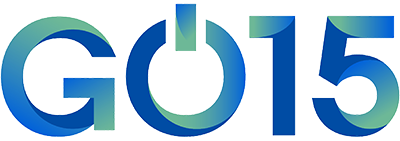Executive Summary
The objective of the survey was to gain insights into specific Human Resource Management practices and policies which have been adopted by member organizations, especially for the personnel who are engaged in Real Time Control Room Shift Operations. The survey focused on the following areas:
1) Workforce Planning
2) Performance Management
3) Incentivization
4) Learning & Development
Human resource plays the key role in the functioning of TSO/ISO. The selection & training of human resource for TSO/ISO functions, especially for real time control room operations, requires careful assessment of their orientation for the job & motivation level along with multi-disciplinary skill sets.
There is some variation of number of personnel within the system operator functions as still some of the organizations are TSOs and some are still vertically integrated utility. There can be as high as 17 operators in a control room shift in case of MISO as compared to average of 4-5 operators in other member organizations control room shift. It indicates the criticality of centralized operations and markets handled in real time operations. Most control centers have 24-hour rotations with a mixture of 6, 8 and 12-hour shifts.
Regarding the qualification requirement, Eskom prescribes minimum five years of experience prior to entry in control room operations. Generally, diploma or graduate degree is sufficient for entry level in control room operations. There is overwhelming majority of member organization relying on full time personnel for day-to-day activities indicating the mission critical functions of real time operations. KPX and CAISO also have internships as one of the employment formats. All member organizations stipulated Work from Home for all non-essential employees. However, control room functions have been carried out with reduced manpower and flexible/hybrid nature of working was also adopted.
There is now greater focus on enhancing capabilities of system operators to reliably and efficiently integrate new resources by proactively upgrading operational capabilities. There is more focus on data analytics and stewardship. Market innovation functions and IT strategic planning parts are being strengthened to reform the market operation design forward to real-time market. Hence, additional manpower resources are required to enhance and implement the skills and infrastructure for next generation future grid. Mostly regulators approve the additional manpower requirements of system operators. In some cases, the leadership board is empowered to approve the additional manpower requirements. Most member organizations prefer external recruitment for new and enhanced functions. However, Eskom and Elia prefer internal reallocations to cater to new roles.
The performance evaluation of real time grid operations personnel is mostly done either on annual basis or half yearly basis based on key performance indicators. All the organizations mandate certification for operators engaged in control room duties. Except for Eskom, the member organizations do not provide any incentive for certification. There is a proper learning and development programme for control room operators to help them to hone their skills and refresh the knowledge in accordance with prevailing rules.
If the link « Read the Full paper » does not open, please contact secretariat@go15.org
